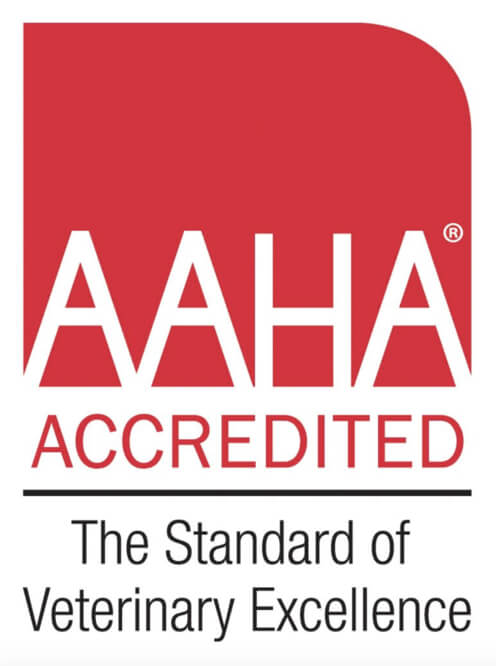
*** UPDATE *** A few weeks ago we created this post based on the information that was currently available from various expert health organizations. Recently however it was discovered that there were in fact cases of animals testing positive for the virus, including a Tiger at the Bronx zoo. In light of this, we have updated this post to reflect the current views on the matter from the AVMA (American Veterinary Medical Association) website.
While two dogs (Hong Kong) and two cats (one in Belgium and one in Hong Kong) living with people diagnosed with COVID-19 have been reported to have been infected with SARS-CoV-2, other dogs and cats also living with infected people remain uninfected. New research articles have been posted to open-access sites on an almost daily basis that describe preliminary results suggesting some domestic animals can be experimentally infected with SARS-CoV-2 and may transmit the virus to other animals in an experimental setting or mount a viral-specific immune response when exposed to SARS-CoV-2. However, caution should be taken to not overinterpret results described in such articles, some of which may report on data from a very small number of animals or provide only preliminary results, and not extrapolate those results to the potential for SARS-CoV-2 to naturally infect or be transmitted by companion animals kept as pets. To date the CDC has not received any reports of pets becoming sick with COVID-19 in the United States. Infectious disease experts and multiple international and domestic human and animal health organizations continue to agree there is no evidence at this point to indicate that, under natural conditions, pets spread COVID-19 to people.
The USDA National Veterinary Services Laboratories has also confirmed the presence of SARS-CoV-2 in one tiger at a zoo in New York. This is the first instance of a tiger being infected with COVID-19. Several lions and tigers at the zoo showed clinical signs of respiratory illness and this tiger was tested accordingly. Public health employees believe the large cats became ill after being exposed to a zoo employee who was actively shedding virus. All of the large cats are expected to recover. No other animals in other areas of the zoo are exhibiting similar clinical signs. USDA and CDC are monitoring this situation and the OIE will be notified of the finding.
If you are not ill with COVID-19, you can interact with your animals as you normally would, including feeding and otherwise caring for them. You should continue to practice good hygiene during those interactions (e.g., wash hands before and after interacting with your animals, including handling of food, supplies, and waste; keep feed, water, and any supplies used to deliver them clean; remove soiled bedding and replace as appropriate).
Out of an abundance of caution and until more is known about this virus, if you are ill with COVID-19 you should restrict contact with pets and other animals, just as you would restrict your contact with other people. When possible, have another member of your household or business take care of feeding and otherwise caring for any animals, including pets. If you have a service animal or you must care for your animals, including pets, wear a cloth facemask; don’t share food, kiss, or hug them; and wash your hands before and after any contact with them.
There have been no reports of pets or livestock becoming ill with COVID-19 in the United States. At this point in time, there is also no evidence that domestic animals, including pets and livestock, can spread COVID-19 to people.
As always, careful handwashing and other infection control practices can greatly reduce the chance of spreading any disease. The National Association of State Public Health Veterinarians’ (NASPHV) compendium of standard precautions is a good reference for appropriate infection control in veterinary practices.
updated 04/09/2020
As the world deals with the escalation of the Coronavirus outbreak, many pet owners have questions on how Covid-19 might affect their animals.
Can the virus be spread to or from my pet?
Infectious disease experts and multiple international and domestic human and animal health organizations agree there is no evidence at this point to indicate that pets can spread COVID-19 to other animals, including people.
Infectious disease experts, as well as the CDC, OIE, and WHO indicate there is no evidence to suggest that pet dogs or cats can be a source of infection with SARS-CoV-2, including spreading COVID-19 to people.
The American Veterinary Medical Association has additional information and resources available at avma.org/Coronavirus.
How do I best protect myself from infection with COVID-19?
Stay informed about the local COVID-19 situation. Know where to turn for reliable, up-to-date information in your local community. Monitor the CDC’s COVID-19 website and your state and local health department websites.
What precautions should I as a pet owner take in the wake of the outbreak?
If you should contract COVID-19 it is important to have a strategy in place. If you need to put yourself in quarantine, then its important that they treat their pet like any other person and distance themselves from the animal as much as possible to prevent the spread of the virus.
Also, prepare for the scenario where you are unable to leave your house for a period of time. Ideally, it would be beneficial to have one month’s supply of extra pet food on hand in addition to having another friend or relative who can step in as caretaker, or take your pet to the vet’s if need be.
At Glen Oak we are taking extra measures to make sure that our clients and animals are safe. Extra sanitation measures are being taken. Please continue to stay tuned to local news for the most up to date information on this situation. As always we are here to answer any questions you may have.

